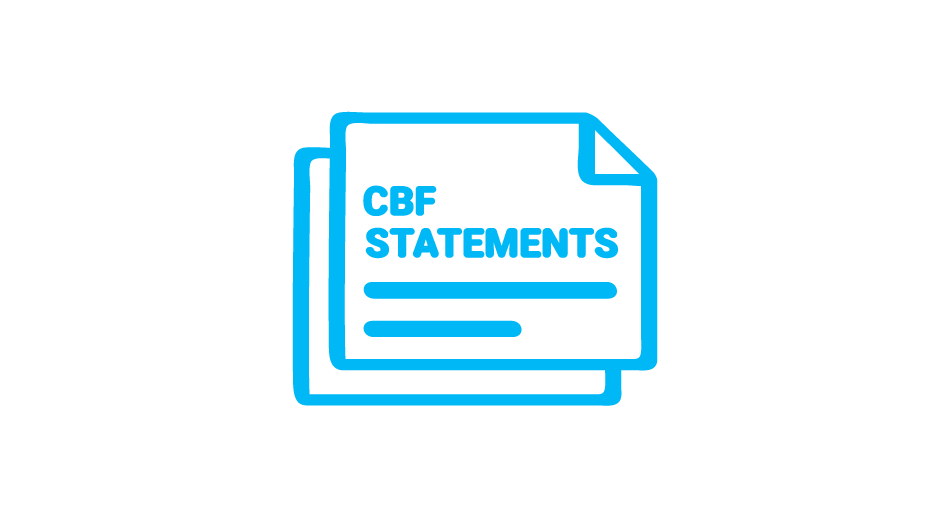
CBF response to Baroness Hollins' final report
The government has published the final report by Baroness Hollins on the Independent Care, Education and Treatment Reviews programme, which aimed to move people with a learning disability and autistic people out of long-term segregation, alongside its response to this report
On Wednesday (8th November 2023), the government published the final report – based on the findings of the Independent Care, Education and Treatment Reviews (ICETR) programme – by Baroness Sheila Hollins on the solitary confinement of people with severe learning disabilities and autistic people detained in mental health and specialist learning disability hospitals. The Government’s response was published alongside this report.
Baroness Hollins’ report states that at the start of the programme 115 people were living in long term solitary confinement in hospital – and by the end this had not noticeably reduced. This report calls for an immediate end to the seclusion of children and young people, and for the use of seclusion and segregation of all people with a learning disability to be a last resort. Yet we know that there are around 100 people currently in solitary confinement – if not more – and there is no mention in the government response of what action is being taken right now to address this.
The report, and the Government response to it, provides further evidence that much repeated words of “commitment” are not translating into action that addresses the underlying issue – the lack of a systemic approach to investment in robust community support and services and a skilled workforce to deliver timely and appropriate support to people with learning disabilities and autistic people. We echo the report’s concerns about the inappropriate and inadequate care for people with learning disabilities and autistic people detained in inpatient settings, many of whom are, as this report shows, living in solitary confinement for years without any sign of being discharged.
The report states again what is already known – there is no therapeutic benefit to long term segregation and it is actively harmful. It highlights the continuing failure of support provided to people with learning disabilities and autistic people. The latest data show that there are more than 2,000 people with a learning disability and autistic people currently detained in inpatient settings – over 200 of which are children. The average length of stay for someone with a learning disability and/or who is autistic is over 5 years, and more than half have no planned discharge date – meaning that they and their family have no idea when they will be able to come home. More than 4000 restrictive interventions, including restraint, seclusion and segregation, were used in July 2023 – including nearly 900 restrictive interventions used against children. This is unacceptable.
Baroness Hollins’ report makes a number of important recommendations that would make a significant difference to the thousands of people currently detained, and to the many more who are currently at risk of detention. This risk is unlikely to change in the short-term following the government’s decision to abandon their commitments to pass the Mental Health Bill and reform the Mental Health Act so that people with a learning disability and autistic people cannot be sectioned just for having a learning disability or autism.
The government’s response to this report does not commit to implementing these recommendations, but instead delegates responsibility to the Care Quality Commission (CQC). The CQC alone is not able to make the changes required. People with a learning disability, autistic people, and their families require a shift away from crisis management, restrictive interventions and inpatient settings towards high quality and timely community support. A strong political will and immediate action are required to address these systemic issues, neither of which are currently evident. We call for the Department of Health and Social Care and partners to properly invest in community care and support – so that children and adults with a learning disability and autistic children and adults can access the right support, in the right place, at the right time.
Read Baroness Hollins’ report here
Read the government response here
Support from the CBF
Resources on our website
The CBF has information available for anyone who has concerns about the issues raised which can be found here:
Family Support Service
If you have been affected by any of the issues raised in this statement, you can call the Family Support Service on 0300 666 0126
Or email us at support@thecbf.org.uk
We are open at the following times:
Monday – Thursday: 9am – 5pm
Friday: 9am – 3pm
We offer information about challenging behaviour to anyone who provides support to a child, young person or adult with a severe learning disability. We can also signpost you to other specialist organisations and sources of information.
Please note we are a small support service so you may not be able to get support straight away. We will support families with urgent concerns as a priority.
Professionals are also welcome to contact the CBF.
